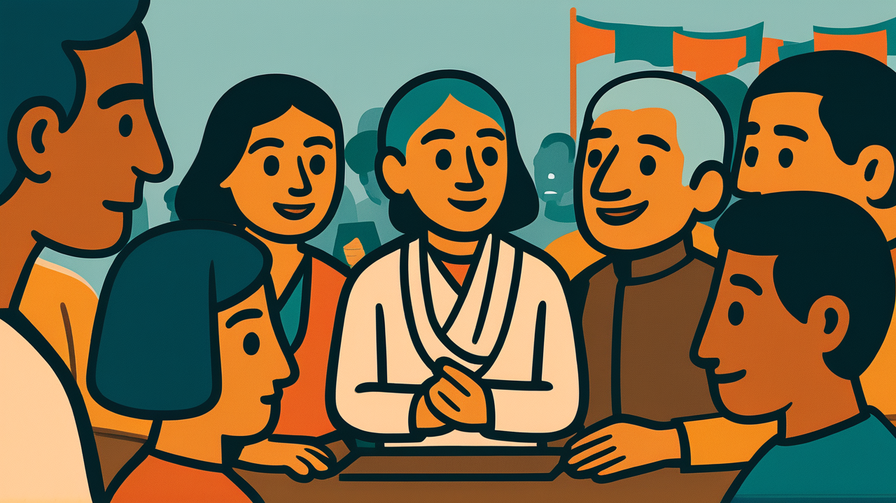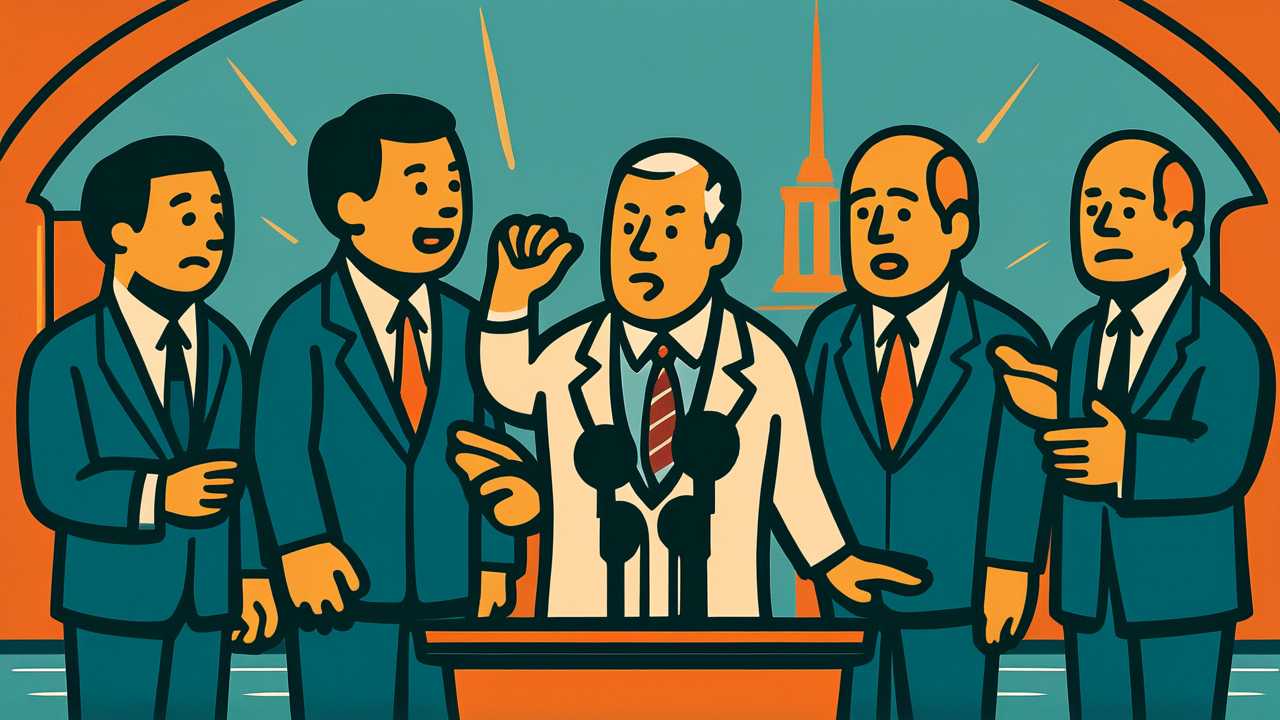[Disclaimer] This article is reconstructed based on information from external sources. Please verify the original source before referring to this content.
News Summary
The following content was published online. A translated summary is presented below. See the source for details.
India is experiencing intense political debates as right-wing Hindu nationalist parties push for constitutional amendments that could fundamentally alter the country’s secular identity. Since independence in 1947, India’s constitution has established the nation as a secular republic where all religions are treated equally by the state. However, Hindu nationalist parties, particularly the Bharatiya Janata Party (BJP) and its allies, are advocating for changes that would give Hinduism a more prominent role in governance and law. These proposed amendments include recognizing India as a “Hindu Rashtra” (Hindu nation), implementing uniform civil codes that might override religious personal laws, and strengthening laws against religious conversion. Critics argue these changes would marginalize India’s 200 million Muslims and other religious minorities, undermining the pluralistic democracy envisioned by the constitution’s framers. Supporters claim they’re correcting historical injustices and asserting the majority community’s cultural identity. The debate has intensified following recent electoral victories by Hindu nationalist parties in several states, creating concerns about the future of India’s secular constitutional framework. Legal experts warn that such fundamental changes could destabilize India’s diverse society, while proponents argue it’s about cultural pride and national identity.
Source: Global Voices
Our Commentary
Background and Context

Imagine if your school suddenly decided to change its core rules—like making one club’s activities mandatory for everyone, even if you belong to a different club. That’s similar to what’s happening in India right now. India is the world’s largest democracy with over 1.4 billion people practicing many different religions: Hinduism, Islam, Christianity, Sikhism, Buddhism, and others.
Since India became independent from British rule in 1947, its constitution has said the government must treat all religions equally—this is called “secularism.” It’s like a referee in a game who doesn’t favor any team. But now, some political parties want to change these fundamental rules.
Expert Analysis
To understand this debate, let’s look at the key concepts:
What is Secularism? In India, secularism means the government doesn’t favor any religion. Everyone has the right to practice their faith, and no religion gets special treatment in laws or policies. It’s different from some Western countries where secularism means keeping religion completely separate from government.
What Do Hindu Nationalists Want? These parties believe that since about 80% of Indians are Hindu, the country’s laws and identity should reflect Hindu culture more strongly. They argue that centuries of foreign rule (by Muslims and then British) suppressed Hindu identity, and now it’s time to reclaim it.
Why Are Others Worried? India has about 200 million Muslims, 30 million Christians, and millions following other faiths. Critics fear that making India officially a “Hindu nation” could lead to discrimination against minorities, similar to how some countries with official religions have treated non-believers or minority faiths.
Additional Data and Fact Reinforcement
Understanding India’s diversity helps explain why this debate matters:
• Population breakdown: 79.8% Hindu, 14.2% Muslim, 2.3% Christian, 1.7% Sikh, 2% Other
• Languages: 22 official languages, hundreds of dialects
• States: 28 states, each with distinct cultures and sometimes different majority religions
• Constitution: Written in 1950, one of the world’s longest with 470 articles
Key proposed changes being debated:
• Declaring India a “Hindu Rashtra” (Hindu nation)
• Uniform Civil Code (same laws for all religions, replacing religious personal laws)
• Stricter anti-conversion laws
• Changes to education curriculum emphasizing Hindu heritage
Related News
This isn’t happening in isolation. Around the world, many countries are grappling with similar questions about religious and national identity. In Europe, debates about Muslim immigration have raised questions about secular values. In the United States, discussions about the role of Christianity in public life continue. In neighboring Pakistan and Bangladesh, minorities face challenges in Islamic republics.
The rise of social media has intensified these debates, with both sides using platforms to spread their messages. Young Indians, much like students everywhere, find themselves caught between tradition and modernity, trying to figure out what kind of country they want to live in.
Summary

India faces a fundamental question about its identity: should it remain a secular nation treating all religions equally, or should it officially embrace its Hindu majority identity? This debate over constitutional amendments isn’t just about law—it’s about what kind of society India wants to be.
For students, this situation offers important lessons about democracy, diversity, and identity. Whether in India or elsewhere, societies must balance majority rule with minority rights, cultural pride with inclusive citizenship. Understanding these debates helps us think critically about our own societies and the values we want to uphold. The outcome will affect not just India’s 1.4 billion people but could influence how diverse democracies worldwide handle questions of religion and governance.
Public Reaction
Indian society is deeply divided on this issue. Many young urban Indians worry about becoming less secular, fearing it could harm India’s global image and economy. Rural communities often support preserving traditional values. Religious minorities express anxiety about their future, while some in the Hindu majority feel their culture has been suppressed for too long. Business leaders worry about international perception, while cultural activists on both sides organize rallies and social media campaigns. Students find themselves debating these issues in colleges, often along religious lines.
Frequently Asked Questions
Q: What does “secular” mean in the Indian context?
A: In India, secular means the state treats all religions equally and doesn’t favor any one religion. It’s not about being non-religious, but about being equally respectful to all religions.
Q: Could India actually stop being secular?
A: Changing the basic structure of the constitution requires a complex process and has legal limits. The Supreme Court has ruled that secularism is part of the constitution’s “basic structure” which cannot be altered.
Q: How does this affect young Indians?
A: Young Indians must navigate between family traditions, modern values, and political pressures. Many worry about job opportunities, social harmony, and whether their friends of different faiths will face discrimination.


